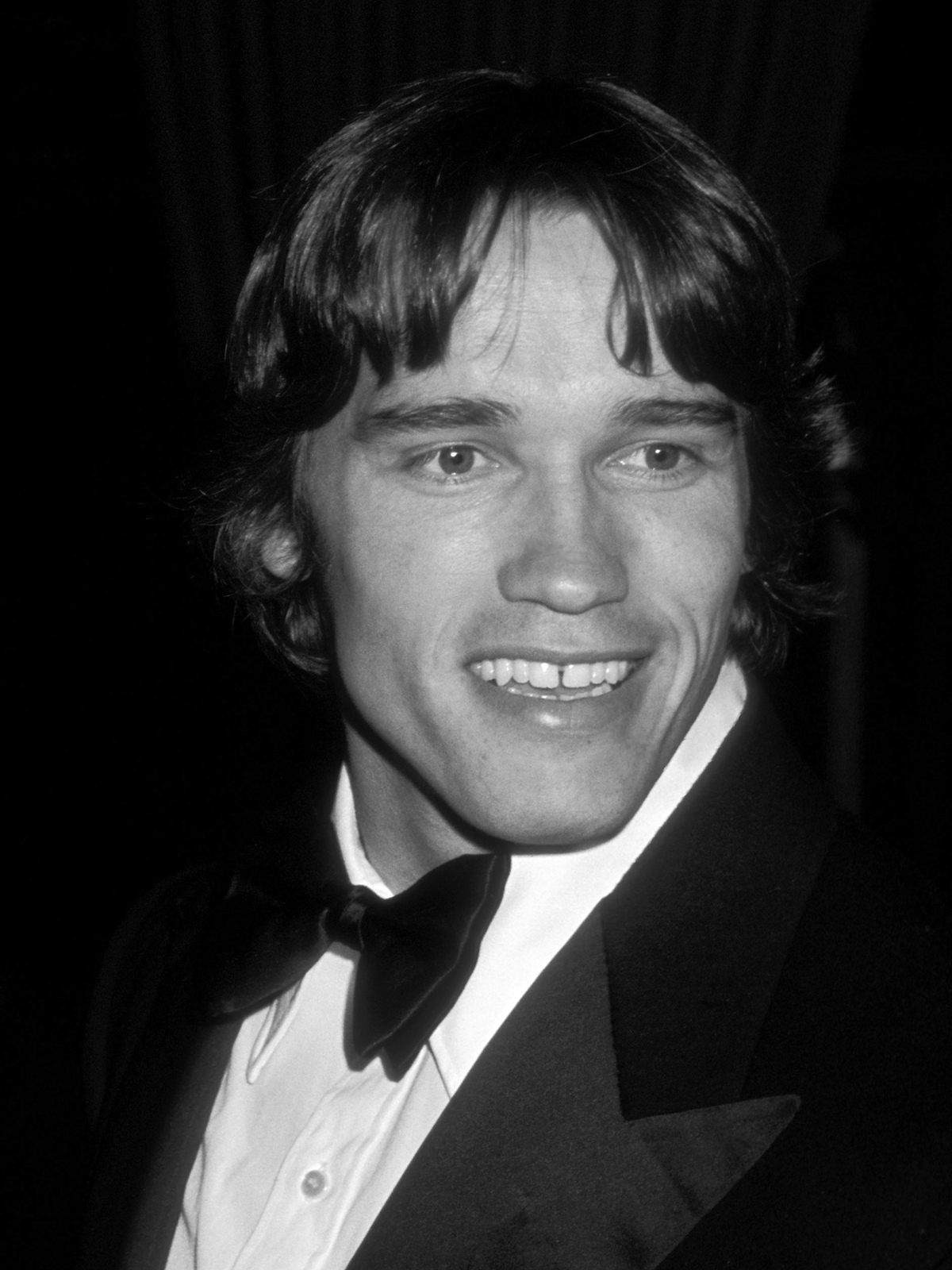
- Golden Globe Awards
Tomorrow’s Stars Yesterday: Arnold Schwarzenegger, 1977
Between 1948 and 1983 Golden Globes were awarded in a special category of “New Star of the Year” conceived to recognize young actors making a mark in their early roles. In this series, the HFPA’s Phil Berk highlights those that would follow their auspicious starts with distinguished careers.
There were a number of New Star of the Year winners between 1971 and 1976 but none ever achieved greatness. The following year we had two great choices. One of them was Arnold Schwarzenegger, and he’s been a trailblazer ever since.
With an unwieldy last name and a thick Austrian accent, even we would have been hard-pressed to have thought that a bodybuilder from a small European village would one day become one of Hollywood’s biggest stars, marry into the prestigious Kennedy family, and become the Governor of California? Well, he did all that and more.
Long before he set foot on American soil, he had made a career out of bodybuilding. He won the Mr. Universe title at age 20, and subsequently seven Mr. Olympia contests. It was a bodybuilding documentary, Pumping Iron, centered on Arnold defending his title, which brought him to the attention of the film community, and no less than Bob Rafelson, fresh off two Jack Nicholson classics, gave him the role in Stay Hungry which earned him his Golden Globe. The film was a critical success, and it encouraged John Milius to cast him as Conan the Barbarian.
Even at that stage, Arnold knew the value of self-promotion. While waiting for his next role he never strayed far from the public eye, and the acting career he yearned for was assured when James Cameron cast him as The Terminator, arguably his most iconic role. Even then he knew the value of working with great directors, whom he hoped would wean him off his body-building image. After an obligatory second Conan movie, he played a special services colonel in Commando, an FBI agent in Raw Deal, a one-man demolition squad in John McTiernan’s Predator, and a falsely accused policeman in The Running Man.
Slowly audiences were accepting him as a regular guy. A turning point was Ivan Reitman’s Twins, his chance to parody his image by playing opposite Danny DeVito. The public loved it, and after that, he was game to do anything.
It was about this time that he met Maria Shriver, who was embarking on a successful career as a TV correspondent; she of course was the late president John Kennedy’s niece. They were married in a much-publicized religious ceremony and soon after started another much-publicized family.
His acting career continued unabated. He exercised his comedy chops again in Reitman’s Kindergarten Cop, had one of his best roles in Paul Verhoeven’s Total Recall, which was a critical triumph; he considered Terminator 2 – Judgment Day a good career choice, and it was a huge box office hit. He got good reviews for McTiernan’s Last Action Hero and James Cameron’s True Lies, which earned his costar Jamie Lee Curtis a Golden Globe as Best Actress in a Comedy. It was his third film with Cameron.
After that, there were a bunch of eclectic roles, Eraser, Jingle All the Way, Batman & Robin, End of Days, The 6th Day, Collateral Damage, and his last film before stepping into the governor’s mansion, Terminator 3 – Rise of the Machines. All were solid box office performers.
And thus began the next monumental chapter in his life when he successfully ran for governor of California. He was never able to pronounce California. It was always CaLEEfornia. But that was his only problem. For most of his eight years, he was a popular governor, yet he left office with a record low 23% approval rating. Go figure!
Unable to run for the presidency, he returned to making movies, including some with his good friend Sylvester Stallone, perhaps never quite recapturing the magic of the first part of his career. He remains, nevertheless, eternally cheerful and optimistic.
His classic movies, Terminator 1 and. 2, Total Recall, and Predator.

